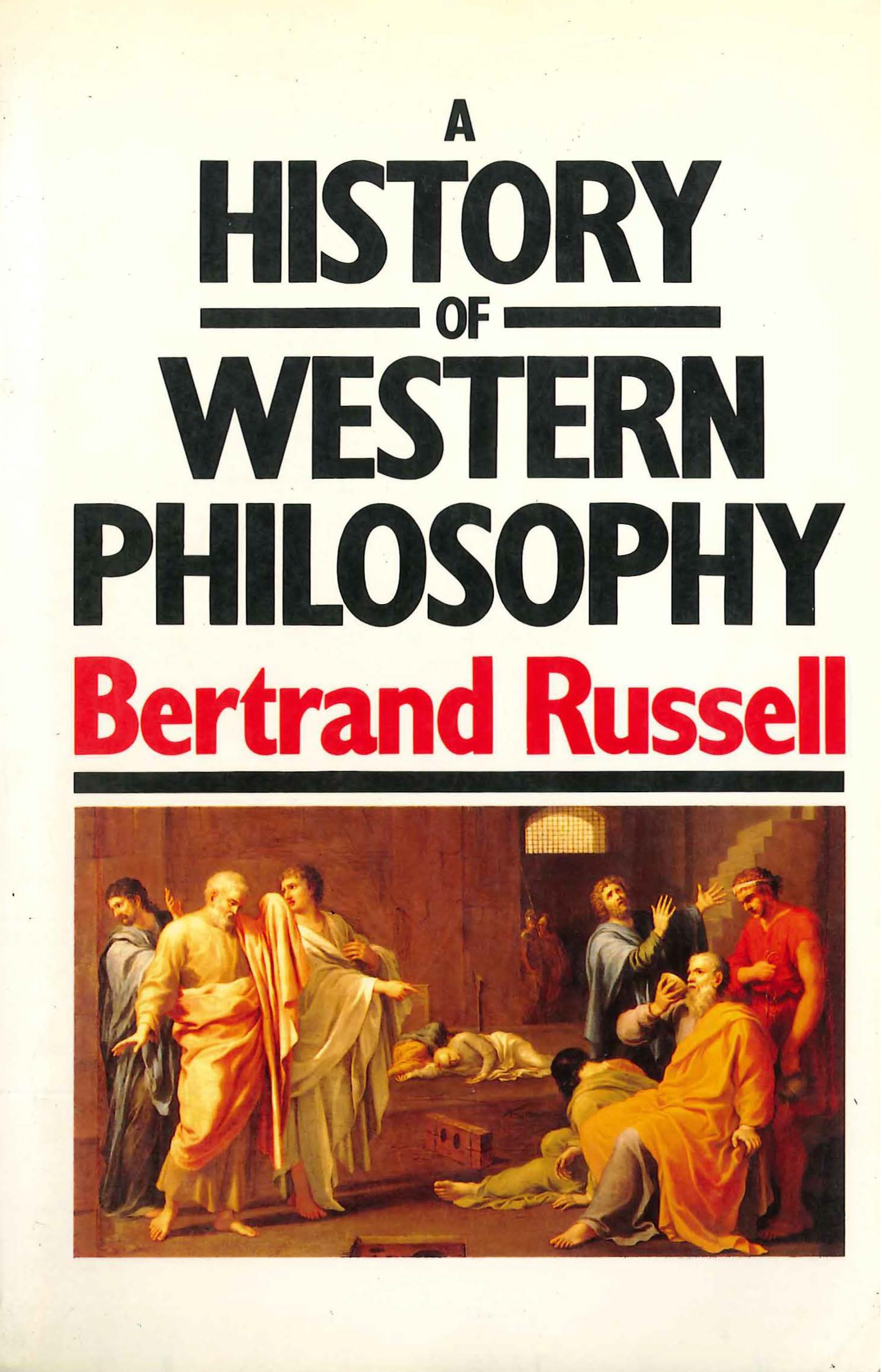The book "The History of Western Philosophy" by Bertrand Russell, a renowned British philosopher, athlete and social critic, is a classic work in reviewing the history of Western philosophical thought, the book features a smooth and clear Russell style, its ability to simplify complex philosophical ideas, while maintaining depth of analysis, the book takes us on an interesting journey through the ages, from pre-Socratic philosophers in ancient Greece, through the Middle Ages and Renaissance, to modern and contemporary philosophy.
Russell presents philosophy not as a set of abstract theories, but as an integral part of every age's historical, social and political context, it highlights how philosophers are influenced by the circumstances of their time, and how their ideas have influenced their communities, Russell not only presents philosophers' opinions, but analyses and evaluates them, shows their strengths and weaknesses, and compares them. Do not hesitate to give his personal opinion, even if it is contrary to the prevailing opinion.
Russell devotes a wide area to Greek philosophy, analysing the ideas of Socrate, Platon and Aristote, and demonstrating their enormous influence on Western thought, it explains how philosophy has shifted from attention to nature and the universe to concern for man, morality and politics, the book follows the evolution of philosophy in the Middle Ages, where religious thought dominates, and the views of the church's parents and school philosophers are discussed,it shows how philosophy tried to reconcile reason and faith.
With the Renaissance, the book undergoes a major transformation, with interest in Greek and Roman philosophy returning, and human thought arising. Russell analyses the ideas of Renaissance thinkers, such as Machiavel and More, and shows how they contributed to the formation of modern political thought. The book devotes a large part to modern philosophy, discussing the ideas of Descartes, Espinoza, Leibniz, Luke, Berkeley, Hume, Kant and Hegel,it shows how philosophy has evolved from an interest in knowledge to an interest in existence, consciousness and history.
The book concludes by discussing contemporary philosophy, analysing the thoughts of Schopenhauer, Nietzsche, Bergson, James, Dewey and Russell himself,it shows how philosophy has diversified in modern times, and how different philosophical currents have emerged, such as existential, pragmatic and analytical.
Although the book is an important reference in philosophy history, it is not without some points that can be discussed, some note that Russell focuses heavily on British and European philosophy, neglecting some other philosophical currents, some also note that his personal opinions may influence his analysis of some philosophers.
The book can also be seen as a history of ideas, presenting not only philosophers' opinions, but also the evolution of philosophical concepts and terminology throughout the ages,it shows how the meanings of certain concepts have changed, and how new concepts have arisen, for example, the evolution of the concept of "substance" from Greek philosophy to modern philosophy is discussed,it also analyses the relationship between philosophy and science, how philosophy was influenced by scientific discoveries, and how philosophy influenced the evolution of science,it highlights the role of philosophy in the genesis of modern science, such as physics and chemistry.
An important aspect that the book also covers is the relationship between philosophy and religion, It discusses how philosophy interacted with different religions, and how it tried to reconcile reason and faith, it shows how religious ideas influenced philosophy, and how philosophy influenced understanding of religion, the conflict between philosophy and religious power is also analyzed in some times.
Russell pays special attention to political philosophy, discussing philosophers' views on the state, society, power and justice, it shows how political ideas have evolved through the ages, and how they have influenced the formation of different political systems, it also analyses the relationship between philosophy and major historical events, such as revolutions and wars.
The book can also be seen as Russell's own intellectual biography, expressing his personal opinions on many philosophical issues, it shows how he was influenced by certain philosophers, and how he disagreed with other philosophers' views. The book also profiles Russell's life and personal circumstances, and how they influenced his writing.
What is also calculated for the book is Russell's ability to link philosophy and public culture, it shows how philosophical ideas have influenced literature, art and music It also analyses the relationship between philosophy and contemporary social and moral issues.
In short, Bertrand Russell's History of Western Philosophy is a comprehensive encyclopedic work that offers an in-depth and interesting presentation of the history of Western philosophical thought. It is recommended that everyone who wishes to understand the evolution of human thought and its impact on our world should read it, the book offers a unique and personal vision of philosophy history, making it a fun and fruitful reading.
